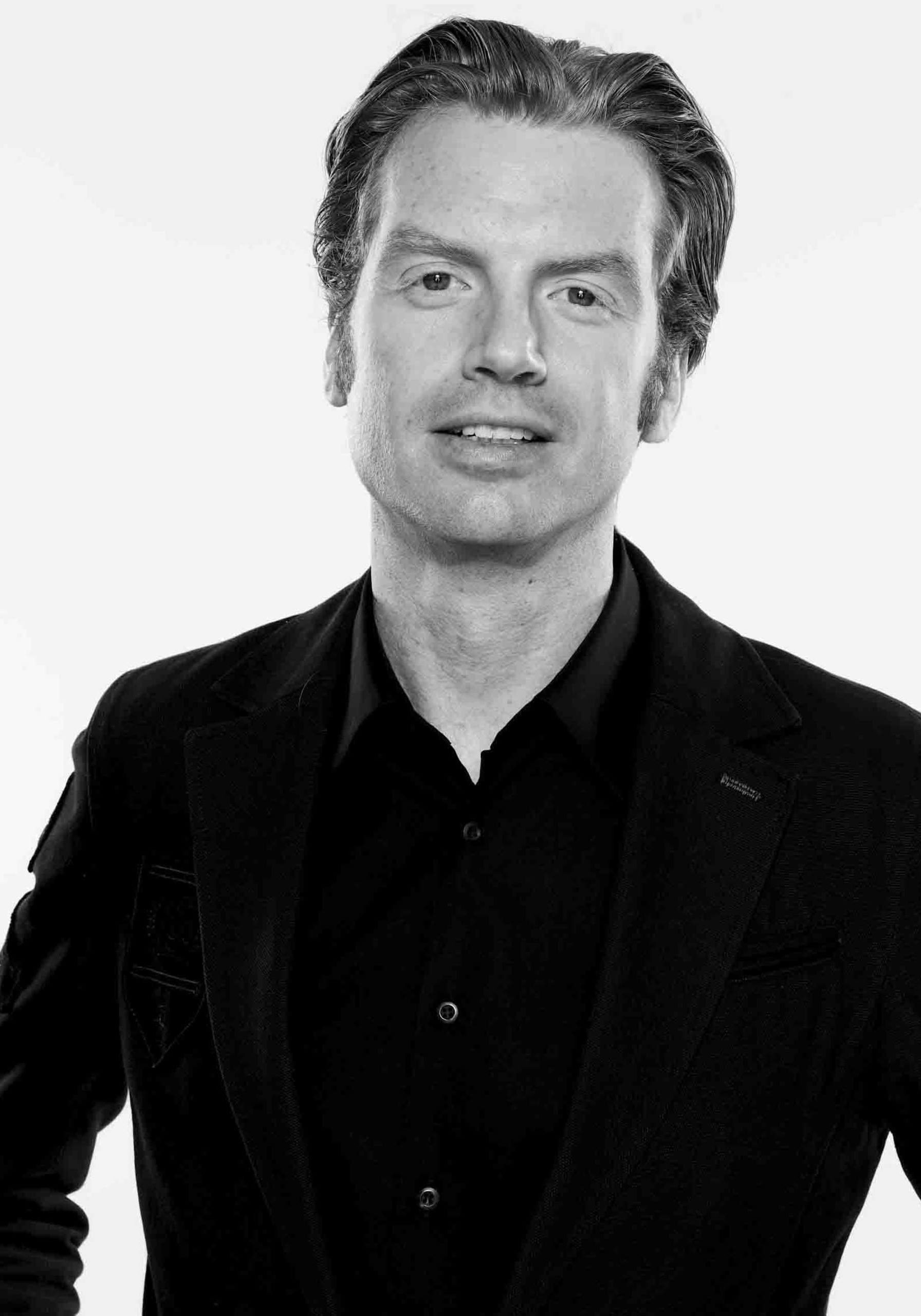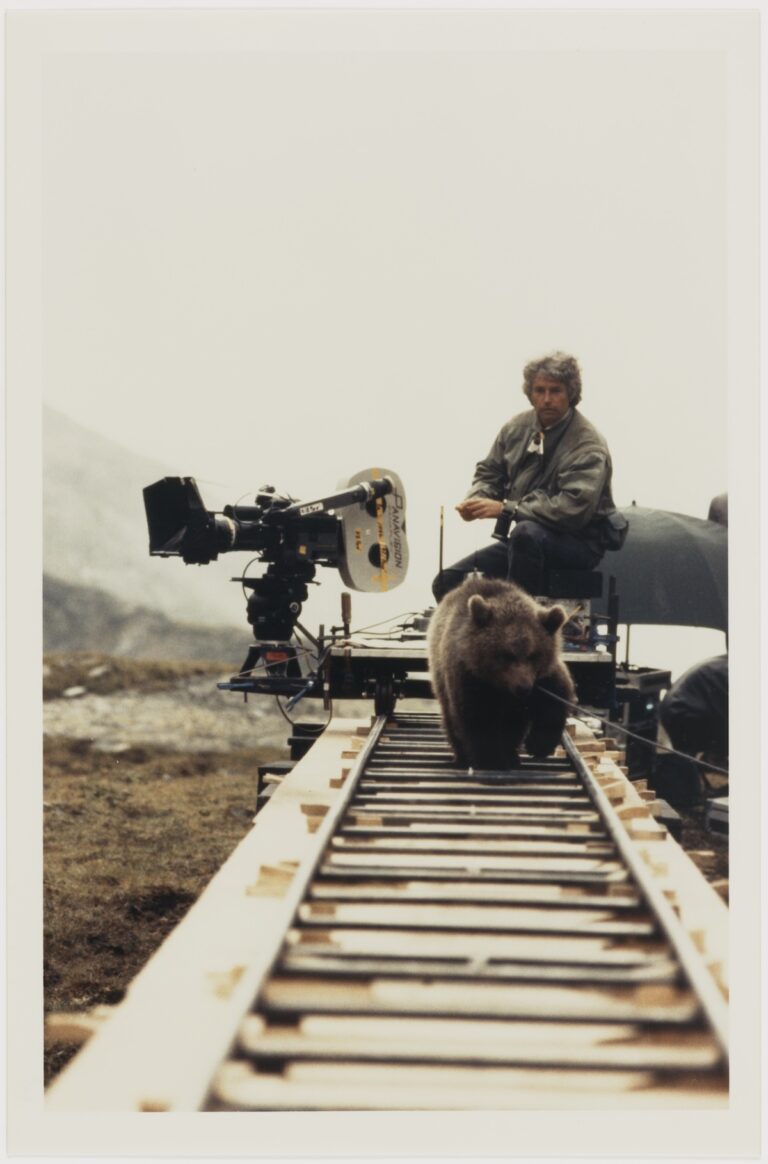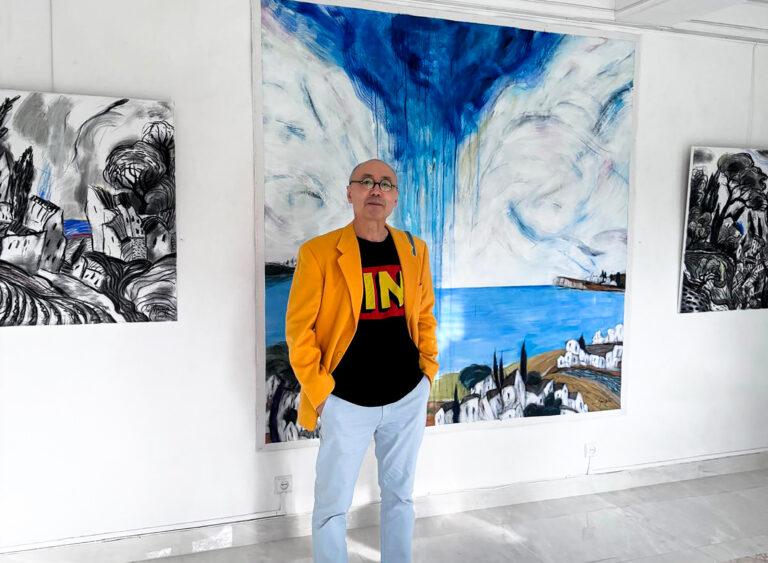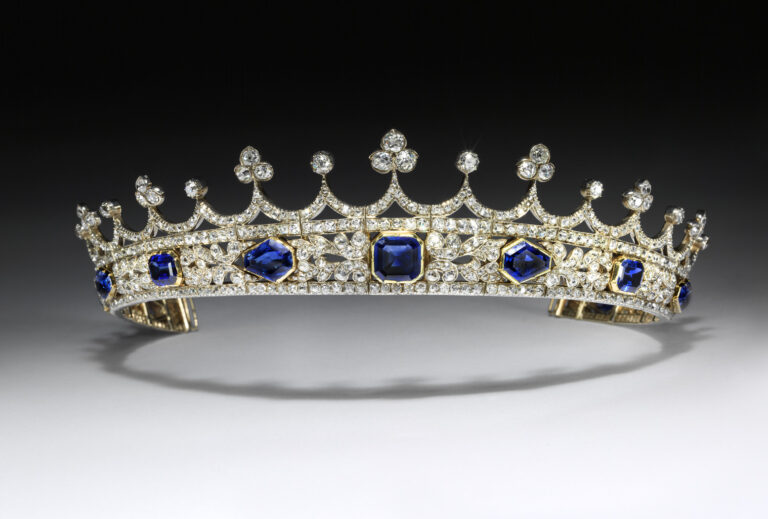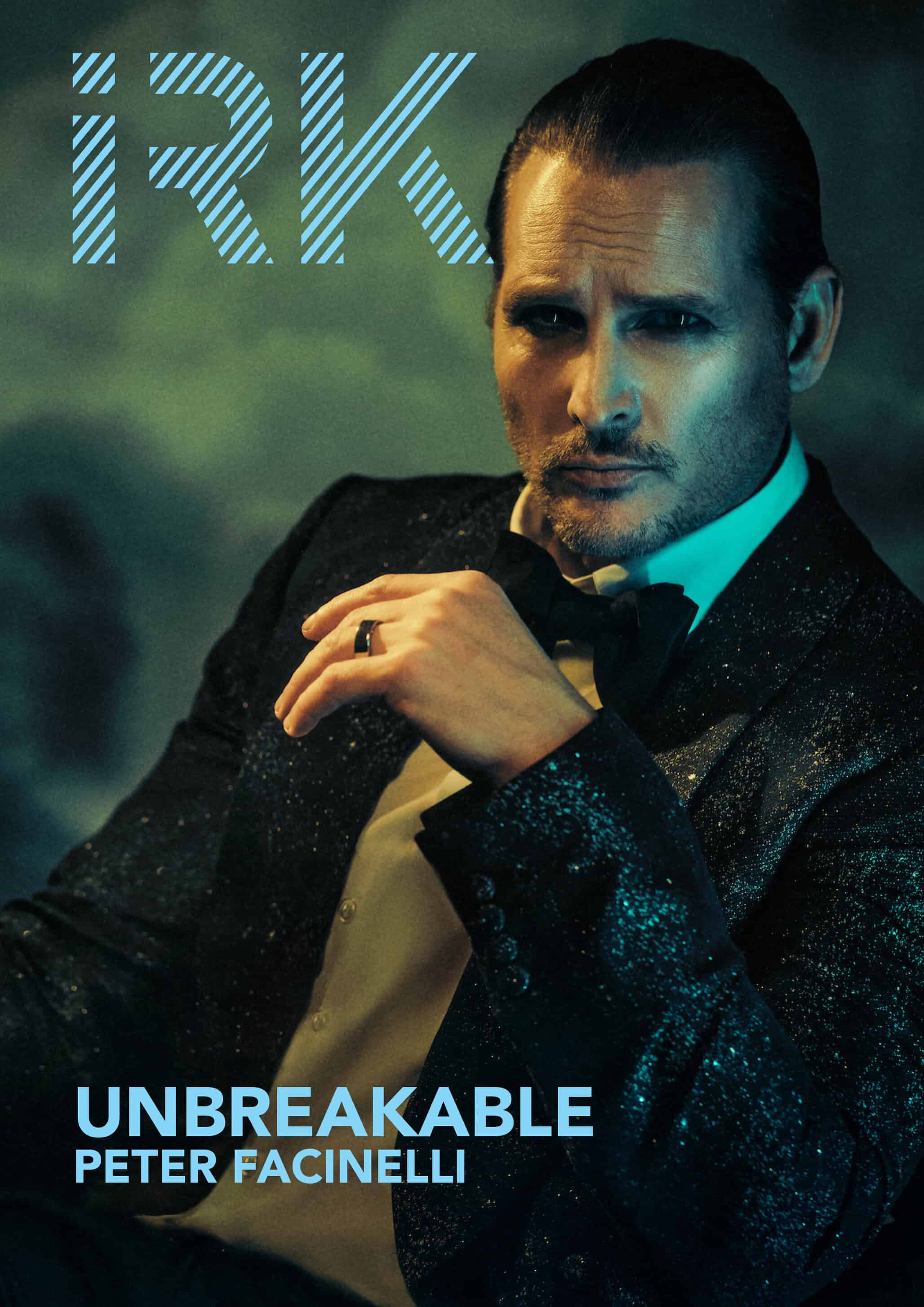
Peter Facinelli is Unbreakable
Brendan Cannon
The Actor talks Dr Carlisle and Twilight and about his new role as Preacher Rick in Unbreakable
Actor Peter Facinelli throws all his creative energy into his work as an actor, producer and writer. He is most known for his roles as Dr Carlisle in the blockbuster series Twilight and Dr. Fitch Cooper in the popular Showtime series Nurse Jackie, which ran from 2009 to 2015. In his capacity as a producer, Facinelli supported his most recent picture, “The Unbreakable Boy” where he also appears as Preacher Rick, the family’s pastor. The Unbreakable Boy is based on the New York Times bestselling book of the same name, and tells the true story of Austin LeRette (actor Jacob Laval), a boy born with the rare genetic brittle bone disease, Osteogenesis and who is on the autism spectrum. With an unusually challenging set of circumstances, Austin’s resilient and contagious spirit ultimately improves the people around him despite an extraordinarily difficult set of circumstances.
Peter Facinelli was photographed by Chris Knight for an exclusive IRK magazine, and afterward, IRK sat down with him to discuss his new movie, “The Unbreakable Boy,” his previous acting experiences, being a father of four, and what’s next on his bucket list.
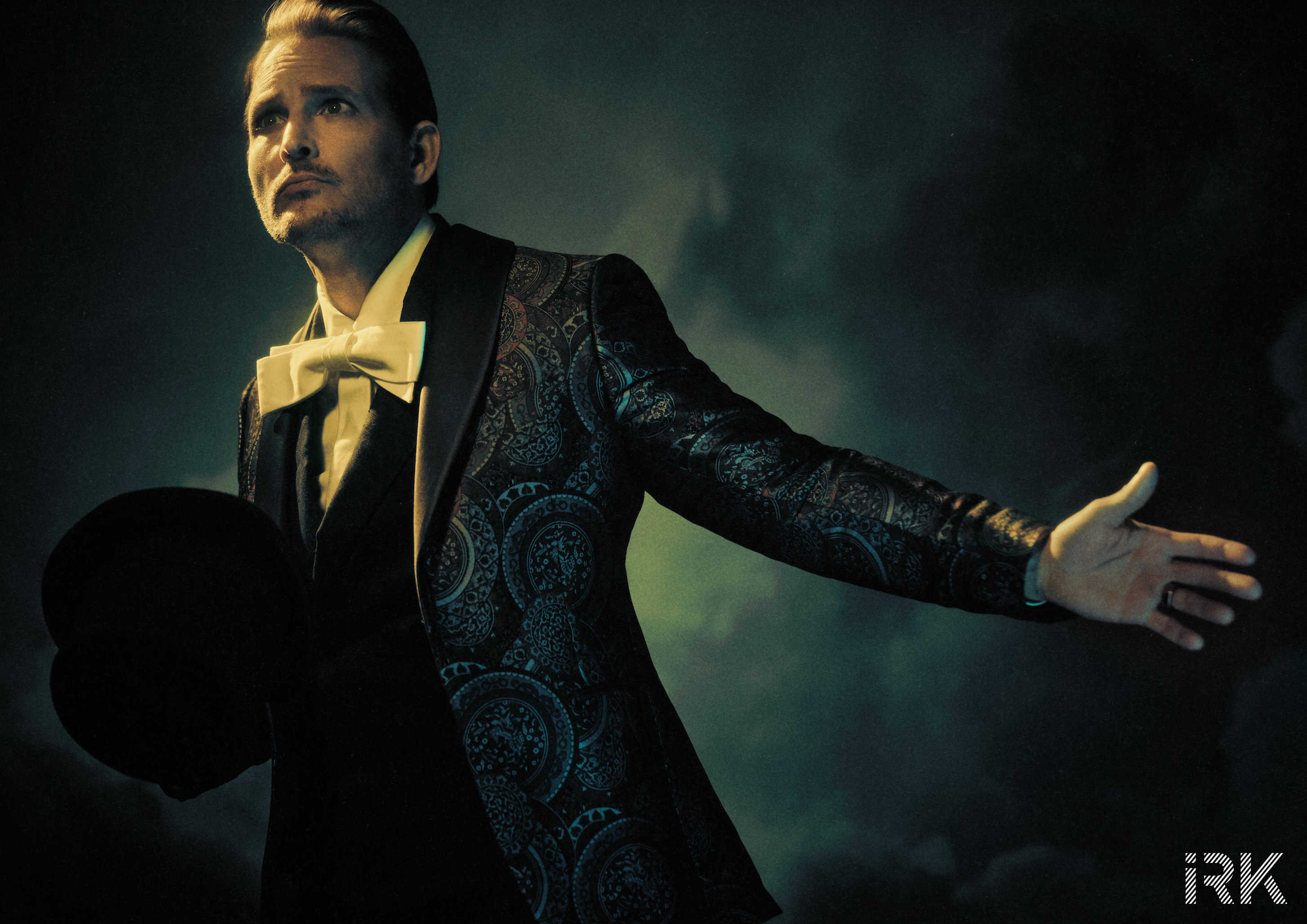
Chris Knight: Your film “The Unbreakable Boy” which you produce and are in, came about when the author came into your brother-in-law’s pharmacy and passed the book onto you…which you then optioned. Having been involved in so many parts of the creative process, what jumps out at you the most now…is it the whole narrative, an individual character, the involvement of other collaborators, or something else?
Peter: It’s a bit of all of that to be honest. When I was younger I used to read scripts and just look at it from an actor’s perspective and think, “Is this an interesting role that I’d like to play?” But I learned that is just a part of the bigger wheel, so I began looking at the movie as a whole. Does the story work? Are all of the characters evolved?
Then over the years, I learned it’s not just the story and the characters; the director plays a big role in the tone and look of a film, as well as the producers. You can have a good film that isn’t produced well that is mishandled and no one sees it, or just ends up not being put together properly due to inexperience or lack of funds. So now when I look at a project it starts with characters and story, but I look at all of it. Who is the team behind it? And if it’s something I’m producing then I start with a story and characters that move me, and build a solid team around it.
The Unbreakable Boy
In the case of The Unbreakable Boy, I really felt the story was moving. It was based on a true story I felt was compelling. I brought the book to a company called Kingdom Films who I respected and thought would like it. They came onboard and suggested Jon Gunn to write and direct, who I was a fan of. And once we had a script we took it to Lionsgate and they green lit the project allowing us to cast some really terrific actors. I’m really proud of this film and am excited for people to see it. It’s a film that makes you feel inspired and I think we need more of those.
Chris Knight: You’ve said that after you finish playing a role, you mourn your characters on account of never getting to play them again. Which character hit you the hardest that you would have wanted to spend more time with and if you had more time, what would you hope they got to do?
Peter: I always go through a mourning period. There is a sadness to not playing that character anymore. Each one hits me differently so I’m not sure how long the process is. But I’d probably say Dr Carlisle from Twilight and “Dr Cooper” from Nurse Jackie were probably the longest, because I played both of those characters for longer periods of time. So they become part of you over the years. Each one of those characters I played for about 7 years. That’s a big chunk of my life pretending to be those people. So it makes sense I’d mourn them longer. But looking back on pictures or videos of characters I’ve played over the years, there is fondness for all of them.
My greatest litmus test after I look at the characters, the story, the team behind the project, is to ask myself, “Am I going to be excited on my way to work in the morning?” If I can truly answer yes, then I know it’s the right project. I can’t always control how the film may come out or if it’s a success, but I feel that if I was excited and passionate every day I went to work then I brought everything I could to it. And when I look back on the projects I’ve done I can say I’ve been passionate and excited to do all of them, so I wouldn’t mind spending more time revisiting any of them
Chris Knight: Robert Pattinson once said the best piece of acting advice he ever received was from you, about how you always keep your ‘birthday in your back pocket’ when you’re in a scene. Can you talk a little bit about where that idea comes from and some of the most interested ways it’s manifested itself in a character for you?
Peter: That was actually an inside joke that I think people misinterpreted. When you’re an actor, teachers suggest you hold a secret in a scene to give you something interesting to play. We were talking about this one night, and I jokingly said to Rob that my secret is that it’s always my birthday. And that it works for any scene. If you’re sad in the scene, you can play “no one remembered my birthday,” If your excited, “hey, it’s my birthday,” If your jealous, “my birthday party is on the the same day as my best friends,” If you’re angry, “you hated your birthday presents,”
I joked that it works for any emotion and it’s a secret no one else would know– and you could keep it to yourself. He laughed. Then said, “Actually… that’s pretty genius.” Haha. But it was kind of an inside (actor’s) joke, so when he explained it in an interview I think people took it literally.
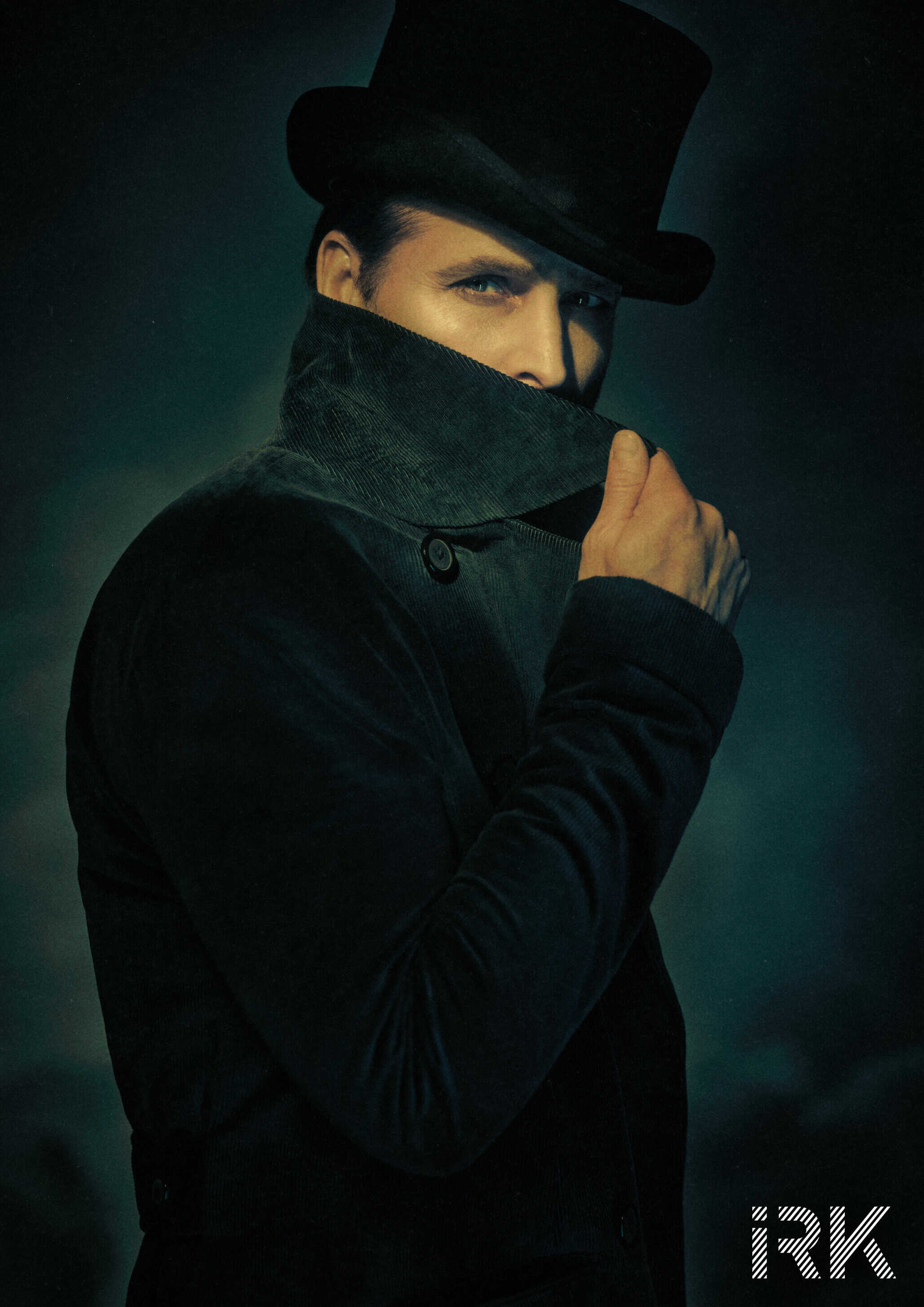
IRK: Obviously TWILIGHT is a highly popular piece of pop culture. Looking back Peter, did you realize while filming it how wildly popular Dr Carlisle and the show would become? And how does it feel to be a part of such an iconic franchise that will live forever?
Peter: We had no idea Twilight would be so popular. When we shot the first film the books weren’t a cult hit yet. They had a small following. We were just hoping that enough people would watch them that we could maybe make the sequel. Months filming I went to Hawaii with my family on summer vacation and most of the people on the beach were reading the book. I still wasn’t sure at the time how well it would do. I think we were in such shock that it took about three films to come out to realize just how big they were.
It’s exciting to be part of a franchise that still lives on. People still enjoy it, and the fan base is still active. New fans are finding it all the time. It’s rare that a film has a shelf life that long. I’ve always appreciated being a part of the franchise because it’s a story that has connected people. I’ve met so many people that have met their best friends bonding over the films or it bonded a mother and daughter or a grandmother or a father and daughter, or husband and wife. It’s a film that brought a community of people together over the love of a story. That is the power of storytelling.
IRK: Congratulations on the birth of your baby boy. How are you adjusting to being a father of four?
Peter: I feel so fortunate to be a father again. I love being a Dad. I’ve had three incredible daughters and now I have a son and get to experience being a father to a boy and raising a young man. There’s no instruction manual when it comes to raising children. And each of them are different and have had different experiences and needs. It’s an opportunity to grow and learn from each of them as much as be their teacher, and caregiver.
I feel grateful for each experience I’ve had with each one of my kids, and every one of them make up different parts of my life. I don’t know what this experience will be now being an older Dad. To have more wisdom and strength at this point in my life, but I also know I still don’t have all of the answers, and I’m sure he will be a great teacher to me as much as my three daughters were.
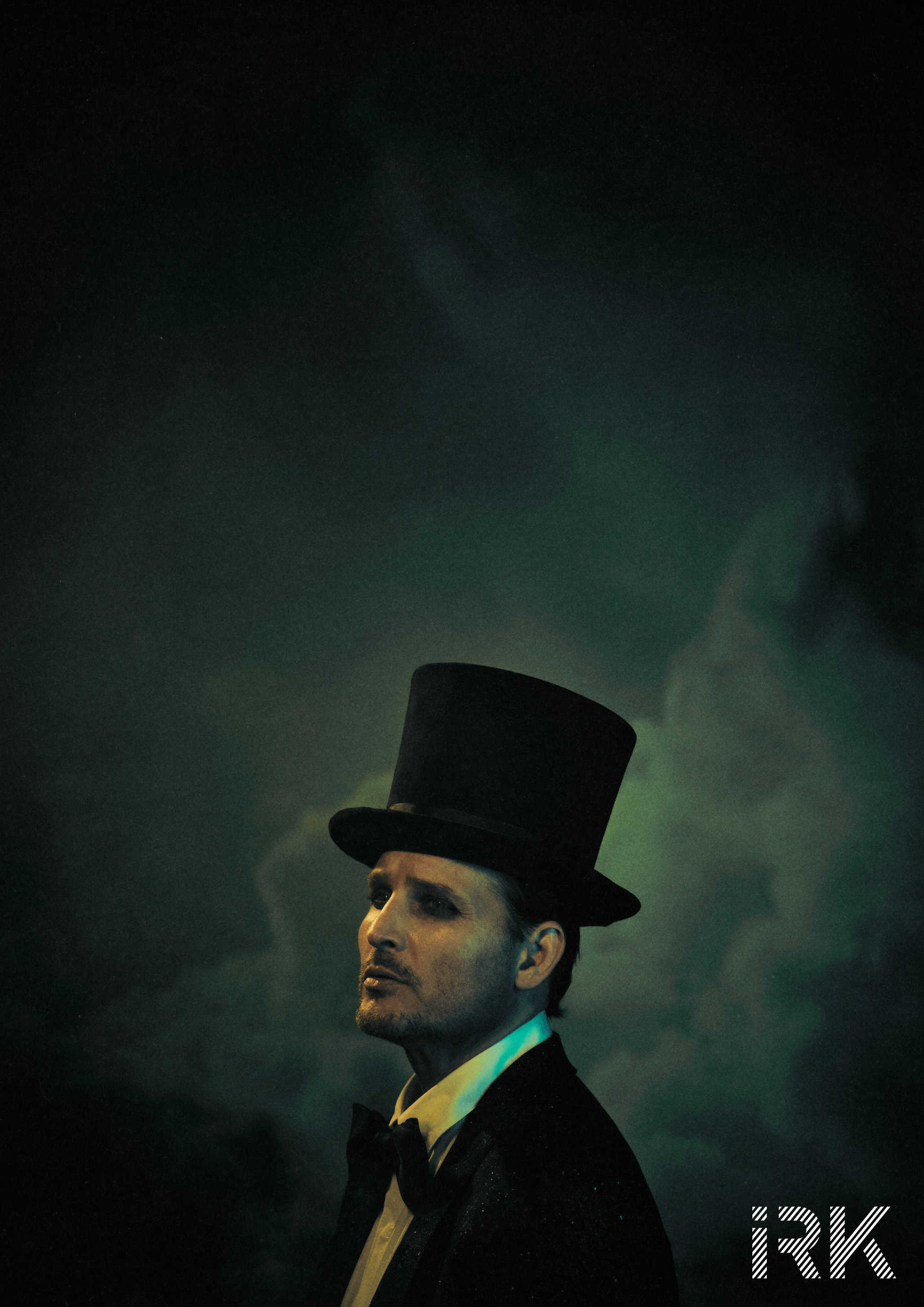
IRK: Peter what has been your favorite project to date and why?
Peter: Asking me what my favorite project is, is like ask me who my favorite kid is. The answer would be all of them. Each character I play is born out of me, and if I’m genuinely excited to go to work then every project– no matter how hard or challenging– has been my favorite at that moment. That doesn’t mean some haven’t been more challenging than others. Every movie I’ve done has had its set of challenges in different ways. But I guess if it wasn’t challenging it wouldn’t be exciting. And if I was bored at work, that would spill into a boring performance, and a bored audience watching. So, I don’t mind challenges. When you overcome them and look back they make it all more rewarding.
IRK: So many young actors are looking for any kind of advice to hone in on their craft. What advice would you offer to young aspiring actors?
Peter: My advice to young actors: Take the Nike motto to heart and “Just do it”. Acting is a muscle. You have to exercise it. So the more you do it the better you get. Take a class, and not just once a week…as many days as you can. Work on material. Read plays. Do a play. Pick up a camera, and start filming you and your friends doing scenes. Write scenes and sketches and act them out. Learn from what’s good, and from what’s bad.
You can learn just as much from making mistakes as you can feeling great about a scene in a class. If you’re trying to “get it right” all the time then you’re never going to push yourself to see how far you can go. So experiment, play, have fun, and “just do it.” The more you do it the more you learn, and the easier and more free you will become. Never stop growing and learning.
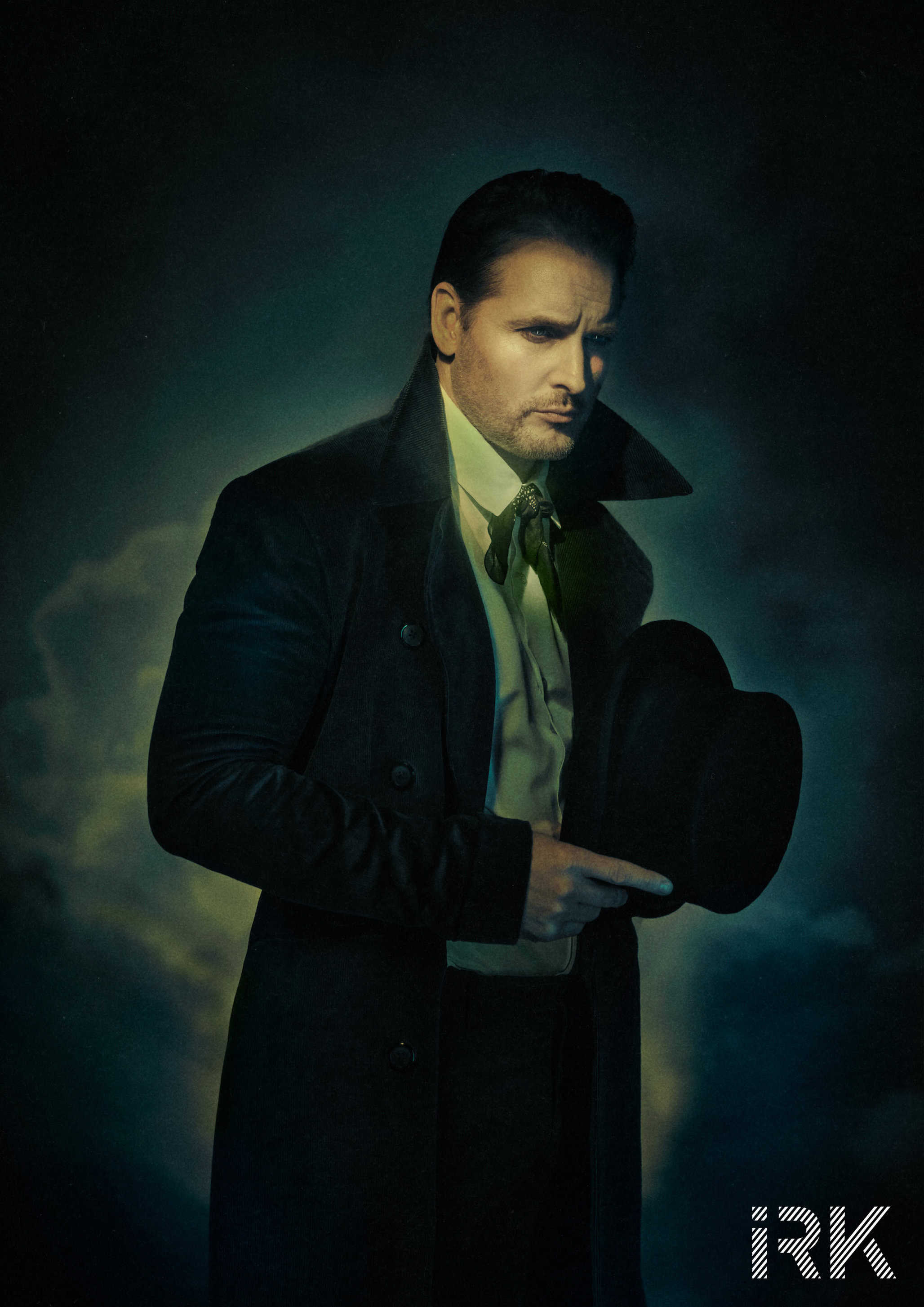
IRK: What is next for you Peter? You’ve done so much already, is there something you would love to try that you have never done? Anything you want to manifest for you future?
Peter: I don’t know what’s next for me. I have several films in the can that are set to come out. I’m currently starring in a film called Unwinding, where I can say I am excited on the way to work, and bring as much as I can to it when I get there. In my profession it can be hard to plan what’s to come. I’d love to manifest more directing jobs, and working with people that inspire me, and working on films that make an impact on people–as well as working on projects that I create.
There is something very empowering about creating projects into existence that I like. Whether it’s something that I write and put pen to paper that comes to fruition and creates jobs for people… crew, actors, directors, post production workers. Creating something that gets made puts tons of people to work, and then one day an audience gets to see the fruit of everyone’s labor. Or producing, Like The Unbreakable Boy… I read a book that moved me and was able to shepherd that into fruition at a studio–creating jobs for fellow actors, directors I admire, crew, etc.
It’s fun coming onto someone’s project and doing my part, lending my talent and walking away as they put it together and bring it to an audience. But being a creator of something or finding material that I can get made, creates a ripple effect of benefits for my peers, and other people in the industry I admire and who inspire me. It is so rewarding when an audience gets to see it. I’m open to wherever I’m best served to tell the best stories with the best people.
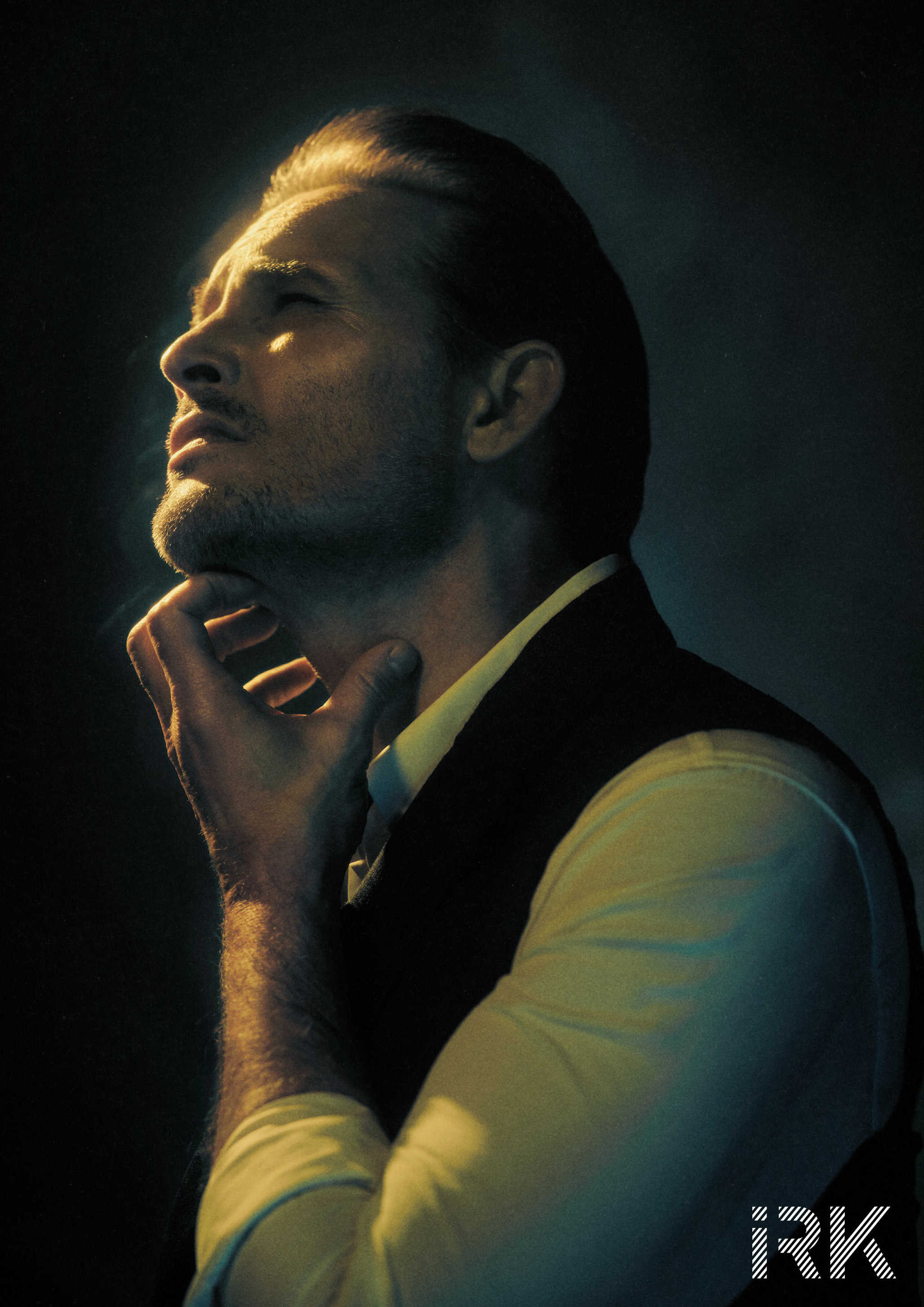
IRK: You have been the subject of so many photo shoots over the years. Do you have a favorite experience on set? And tell us about your shoot with Christy Turlington.
Peter: I’d have to say this was one of the most fun shoots I’ve done.. Chris Knight really impressed me with his vision and his lighting. I’ve done a lot of shoots over the years, and this one stood out for sure. In my earlier days, I’d have to say shooting with Bruce Weber. I did the shoot with Christy Turlington when I was 19. I hadn’t even acted professionally yet. Christy was (and still is) an Icon, so working with someone who was a legend, even back then, with a legendary photographer was exiting.
IRK: Fashion and art overlap in so many ways. How do you view fashion as an art form and how do you use fashion to express yourself?
Peter: Fashion is art, and art is fashion. Whenever I play a character the clothes help to shape and inform the energy of the person I portray. Fashion can make a person feel. Whether they are viewing fashion on someone else or wearing the clothes and feeling a certain way about how the clothes make them feel. It’s an important part of who we are as a species. Maybe that’s why being naked is so vulnerable. We stand there with no outside expression to help us feel who we are or believe who we are. So without clothes we have to ask the question of who our true selves are.
Even off of a set, the clothes I wear make me feel the way I want to be in whatever way I need to express myself. So if I go to red carpet event, wearing something that makes me feel good is important. But I wouldn’t wear that same outfit to the grocery store or I’d feel overdressed and uncomfortable. Fashion gives us expression, but also our expression dictates the fashion. So fashion IS art, and art IS Fashion. While doing this photoshoot, each outfit made me feel a certain mood, and the mood I was feeling shaped the way I moved in the shoot. I wasn’t really thinking about it or trying to create it. I just felt it. And that allowed for the expression to be captured by the photographer.
IRK: You were so expressive on your shoot for IRK Magazine. Obviously that came from your modeling career, tell us how you transitioned from modeling to acting?
Peter: I think the expression came more from the environment. The lighting. The clothes, The music playing. I briefly used to model when I was younger. But it feels more like playing a role when you slip into an outfit that makes you feel a certain way, and the lighting feels a certain way and the ambience and the music playing in the background. And if you allow yourself to feel then the expression comes. Also the photographer plays a big role in how they make you feel. And a photographer like Chris Knight makes you feel confident and free. I really enjoyed working with him.
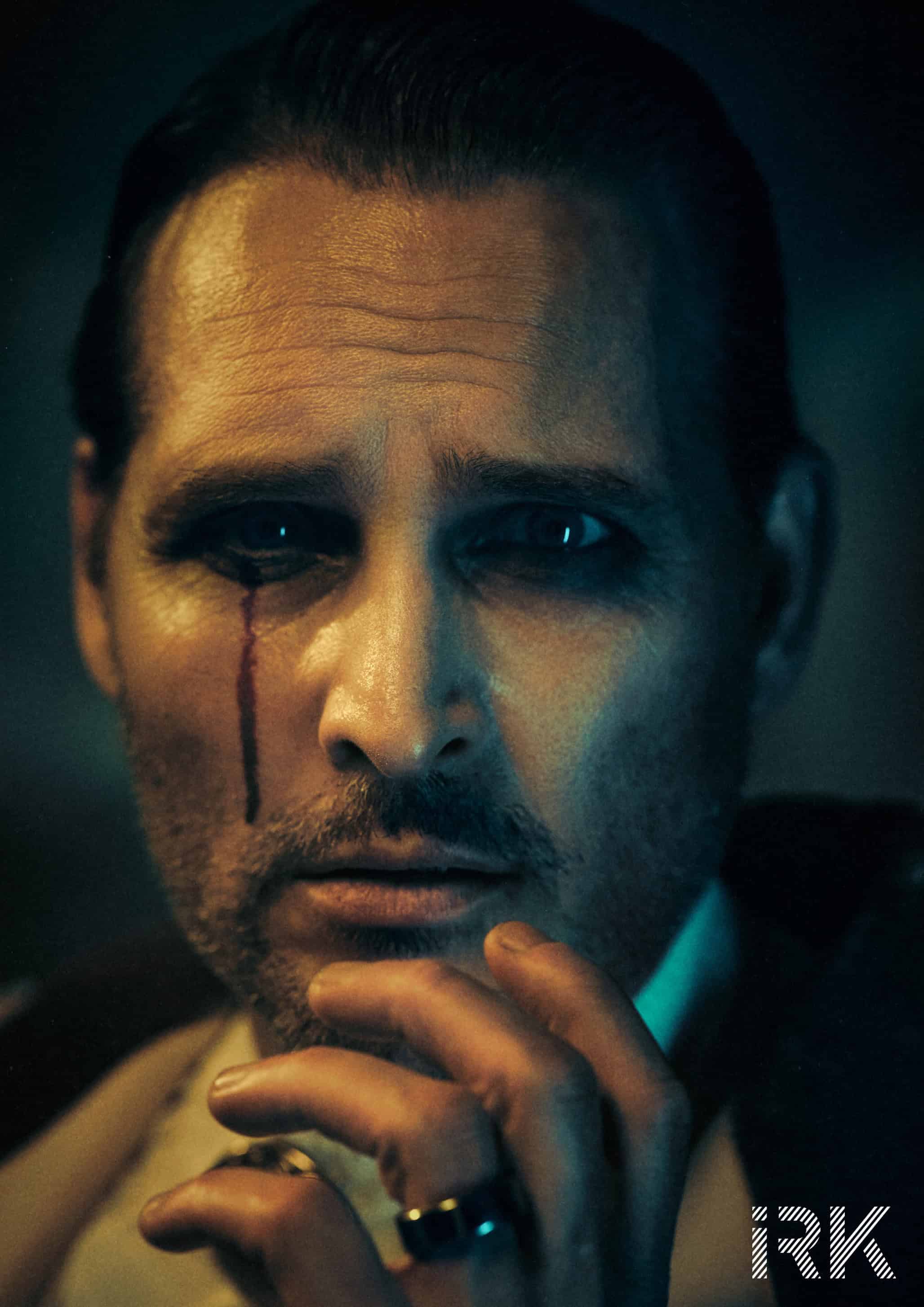
IRK: Peter, you are based in LA now, but you were born in New York City. What do you love about coming back to visit NYC and what was the best part about growing up in NYC?
Peter: NY will always be home to me. There is an energy there that is like no other place in the world. It’s a hard one to explain. But it feels, raw, and cool and edgy. There’s a toughness you have to have there, and something unapologetic about it. It’s a melting pot of different people, ethnicities, occupations, classes, all co-habituating together. I love sitting on a subway and watching people, or sitting in a cafe and watching them. I love walking the streets and being around a parade of people coming and going at a New York pace. I’ve been in Los Angeles a long time, and there are things I love about LA too. Especially the weather. lol But there’s no place like home.
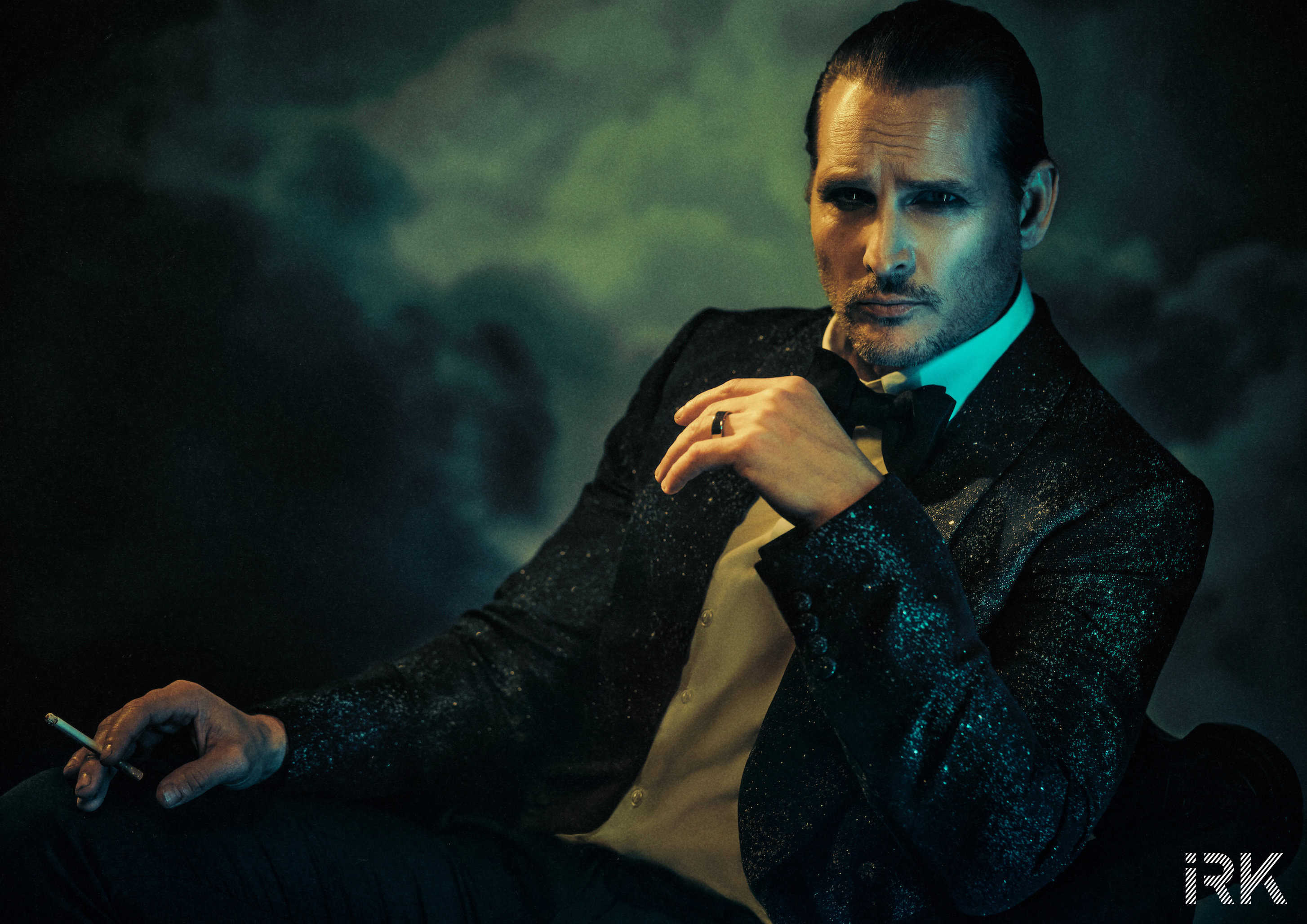
Photographer: Chris Knight @chrisknightphoto
Stylist: Cannon @thecannonmediagroup @theonlyagency
Grooming: Mary Irwin using Viseart Paris @marymakeup
Stylist Assistants: Winnie Noan @winnie_noan, Gianna Eidel @gianna_eidel
Cover style credits: Jacket, Hiromi Asai @hiromi.asai @flyingsolonyc Bowtie, Tom Ford @tomford
Share this post
Cannon is our Editor-At-Large since August 2016. He grew up in New York City and was influenced at an early age by rock and fashion. He is an award-winning celebrity stylist, fashion editor and creative director who has styled many of his favorite musicians including Annie Lennox, Cyndi Lauper, Jimmy Page and Shirley Manson. His wit, charisma, and style have made him a trusted and sought-after stylist by Hollywood legends such as Liza Minnelli, Willem Dafoe, Dennis Hopper, and Glenn Close.
Cannon has also worked with some of today's hottest celebrities, including Diane Kruger, Angelina Jolie, Matt Damon, Penn Badgley and Kellan Lutz. He was the first stylist to get Barbra Walters into a pair of jeans for a photo shoot, and had the opportunity to dress Michael Jackson as the KING OF POP for MTV. In addition, Cannon also founded PLUMA- a luxury costume jewelry collection made exclusively in Italy that was recently featured on the cover of Italian Vogue. As a result of working with great musicians and celebrities, Cannon has contributed to multiple publications including: Rolling Stone, Vogue, Time, Entertainment Weekly, Vanity Fair and W. He has styled large casts for every network including: Lost, Sopranos, The View, Project Runway, Kelly, The Today Show, Top Chef, and The Office. Cannon's expertise in fashion also has lent itself to him being in front of the camera as a style expert, with television appearances on E!, Style, VH1, CBS, NBC, ABC, TLC, and Bravo. Cannon has been an on-air spokesperson for TJ Maxx, Burlington Coat Factory, Chapstick, Pantene, Dove, and Peanuts/Snoopy Worldwide. He has also been profiled in American, German and Japanese publications. In addition, Cannon was instrumental in organizing an inaugural panel discussing fashion and film for MEIFF in which he also served as a participant alongside Jason Wu and Kathryn Neale Shaffer, contributing editor at American Vogue.
Whether it's obtaining real museum pieces for a Discovery Channel commercial or recreating 50 unique culturally observant costumes for the worldwide launch of the National Geographic Channel, Cannon's respect for authenticity and his gift of problem solving has left lasting impressions on everyone he has worked with. Additional commercial work also includes Saks Fifth Avenue, Target, Sony Music, RCA, Bravo Network, Sprint, Bergdorf Goodman, and Neiman Marcus.
Cannon has styled fashion shows for Jason Wu and the Life Ball in Vienna, Austria, starring THE BLONDS, which is the largest AIDS benefit runway show in the world, that year hosted by President Bill Clinton and Eva Longoria. Other fashion shows include Snoopy in Fashion, Joanna Mastrioni to name a few. He has also styled shows for Safilo and their licensed brands, which include Gucci, Christian Dior, Emporio Armani, Ralph Lauren, Dior Homme, Max Mara, Marc Jacobs, Marc by Marc Jacobs, Stella McCartney, Banana Republic, Tommy Hilfiger.
Read Next

